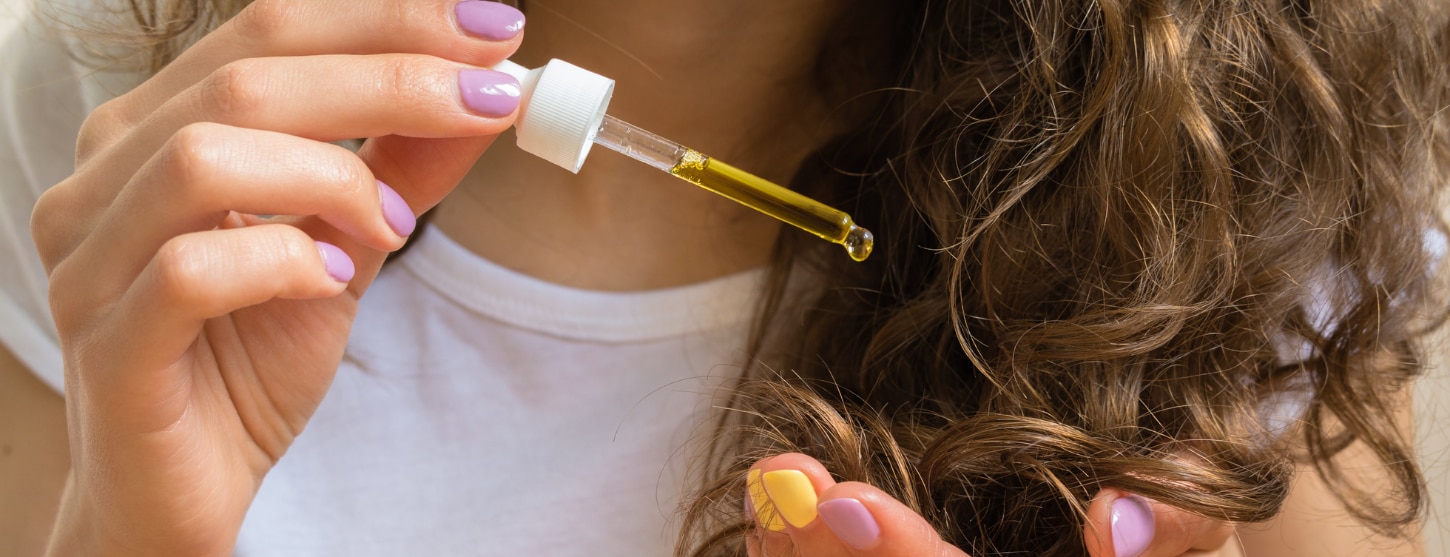15% off €25
Code:EXTRA
What *is* itchy skin?
.png)
There's only one thing more annoying than a constant itch: not knowing what is causing it. Find out what could be causing you to have itchy skin and how you can remedy it.
Work out what’s causing that itching and scratching – and how you can help yourself
We’ve all found ourselves scratching our skin on occasion. Itching – or pruritus, to give it its medical name – affects everyone from time to time, whether it’s caused by an insect bite, a rash or dry skin. But if it’s more than the occasional mild itch, pruritus can become troublesome; no wonder it’s the most common symptom seen by skin experts.1 The British Association of Dermatologists estimates 8-9% of the population may be affected by significant pruritus in the course of any two weeks.2
Common causes of itchy skin
There are many possible reasons for itchy skin, ranging from skin conditions to illness or even psychological factors such as depression or anxiety.3,4 Research published in the Annals of Dermatology in 2011 suggests older people are most affected, perhaps because their skin tends to be drier, which may make it more prone to itching.5
Handpicked content: Is your diet triggering your itchy skin?
Here are some of the most common causes and how to tackle them.
Eczema and psoriasis
In both skin conditions, itching is thought to be caused by inflammation, which can then result in an itch-scratch cycle: when you scratch, your skin gets irritated, causing more inflammation.6,7
In eczema, the damaged skin barrier causes moisture loss and can allow irritants in, which may make itching worse. This moisture loss increases at night, which may be one reason why itching is worse after dark.8
In psoriasis, the inflammation causes intense itching but scratching can damage the skin, which makes the body increase inflammation to heal the wounds that can make the itching even worse.9
Tackle it: For both eczema and psoriasis, emollients – moisturisers that reduce water loss – can help soothe dryness and itching, while steroid creams from your GP can ease inflammation.
In more severe cases, you may need to be referred to a dermatologist.10,11 Diet and supplements can help too. A Norwegian study looking at people with eczema found that those taking fish oils containing 1.8mg of the omega-3 fat EPA had a drop in symptoms after three months – omega-3s are known to soothe the body’s inflammatory response.12
Handpicked content: What is eczema and how you can treat it naturally
Urticaria
Also known as hives, urticaria leads to intensely itchy patches or red, raised wheals on the skin. It is caused by the release of histamine from ‘defence’ cells, called mast cells, in the skin.13/sup>
Urticaria can be acute and crop up in reaction to an allergen – such as a food or a medicine like aspirin – or chronic and keep reappearing, often in response to physical triggers such as sunlight, cold or pressure on the skin, although a clear cause can’t always be found.14
Tackle it: Keep a symptoms diary for a couple of weeks – if you can work out what your trigger is, you may be able to avoid it. Although it can be tricky avoiding physical triggers, as you may not be able to stay out of the cold or sunshine. Try taking an antihistamine when your urticaria does flare up.15
Menopause
It may not be a well-known symptom, but falling oestrogen levels during menopause can lead to pruritus. Oestrogen helps produce collagen, a substance that keeps skin soft and springy, and also contributes to the production of natural oils that help moisturise your skin.16 So when oestrogen levels drop, the amount of collagen and oils decline too, which may cause your skin to become thin, dry and itchy.17
Tackle it: Switch to a gentle cleanser instead of soap, and you may need a richer moisturiser. Look for one with either glycerine or hyaluronic acid, which both help lock moisture in.18
Handpicked Content: What you should know about the menopause
Sensitive skin
Some people simply have more sensitive skin than others, which means their skin may itch, tingle or go red when it comes into contact with certain substances, such as chemicals in washing powders or skincare products.19 While ‘sensitive skin’ isn’t a medical diagnosis, there can sometimes be medical causes, like the skin conditions listed above. Or you may just have drier-than-average skin that reacts to triggers more easily.20
Tackle it: Find products that work for you. These are often mild, and free from synthetic colours and fragrances. Non-biological washing powder is often recommended for those with sensitive skin.21 Protect yourself from the sun with a mineral-based sunscreen such as zinc oxide or titanium oxide, as the chemicals in conventional sun cream may irritate your skin.22 If your itchy skin isn’t responding to any of the tips above, see your GP who may ask for an allergy test and further investigation.
1. Grundmann S and Ständer S. Chronic Pruritus: Clinics and Treatment. Available from: https://www.ncbi.nlm.nih.gov/pmc/articles/PMC3119985/
2. British Association of Dermatologists. Pruritus. Available from: http://www.bad.org.uk/shared/get-file.ashx?id=121&itemtype=document
3. As above
4. Caccavale S, et al. Skin and brain: itch and psychiatric disorders. Available from:https://www.ncbi.nlm.nih.gov/pubmed/25854671
5. As Source 1
6. National Eczema Association. Why does eczema itch? Available from: https://nationaleczema.org/why-does-eczema-itch/
7. Medical News Today. Why does psoriasis itch and how can I stop it? Available from: https://www.medicalnewstoday.com/articles/319585.php
8. As Source 1
9. As Source 7
10. NHS Choices. Treating atopic eczema. Available from:https://www.nhs.uk/conditions/atopic-eczema/#treating-atopic-eczema
11. NHS Choices. Psoriasis. Available from:https://www.nhs.uk/conditions/psoriasis/treatment/
12. Bjørneboe A, et al. Effect of n-3 fatty acid supplement to patients with atopic dermatitis. Available from: https://www.ncbi.nlm.nih.gov/pubmed/2650695 https://www.ncbi.nlm.nih.gov/pubmed/2650695
13. British Association of Dermatologists. Urticaria and angioedema. Available from: http://www.bad.org.uk/shared/get-file.ashx?id=184&itemtype=document
14. As above
15. As Source 2
16. Healthline. Does Menopause Cause Itching Skin? Plus, Tips For Managing Itching Skin. Available from: https://www.healthline.com/health/menopause/menopause-itching/
17. As above
18. American Academy of Dermatology. Caring for your skin in menopause. Available from: https://www.aad.org/public/skin-hair-nails/skin-care/skin-care-during-menopause
19. DermNet NZ. Sensitive skin. Available from: https://www.dermnetnz.org/topics/sensitive-skin/
20. As above
21. Persil. Finding the best laundry detergent for your sensitive skin: a guide. Available from: https://www.persil.com/uk/laundry/laundry-tips/washing-tips/finding-the-best-washing-powder-for-sensitive-skin.html/
22. Sophia Charalambous. 10 best sunscreens for body. The Independent. Available from: https://www.independent.co.uk/extras/indybest/fashion-beauty/skincare/best-sunscreen-for-tanning-sensitive-skin-uk-body-a7012831.html



